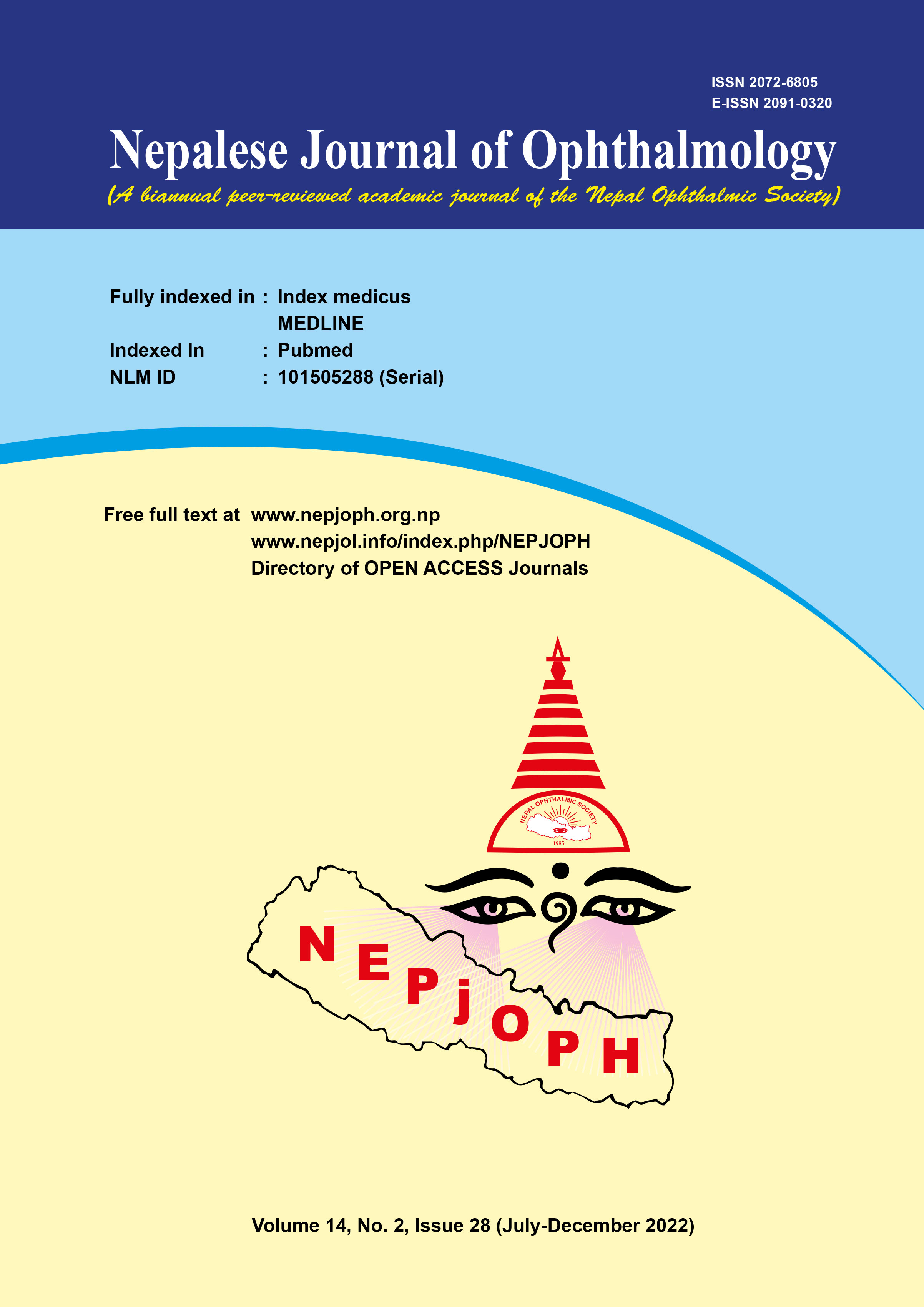Evaluation of teachers’ self-efficacy on integration of eye health education and promotion at basic schools in Solukhumbu district, Nepal: A cross-sectional study
DOI:
https://doi.org/10.3126/nepjoph.v14i2.43237Keywords:
Eye health, Self-efficacy, Teachers, Visual assessmentAbstract
Introduction: Many studies have shown that eye health services in Nepal are still far behind in reaching schools. Therefore, the aim of this study is to examine the teacher’s self-efficacy for the incorporation of eye health promotion activities.
Materials and methods: A cross-sectional study design was applied with a self-administrated questionnaire. A total of 292 teachers were randomly selected for this study.
Results: Male (153.38) older-aged and Dalit ethnic group (159.81) teachers, as well as teachers who had participated (146.85) in the program, had higher self-efficacy to conduct school eye health-promoting activities than non-participants in schools. But, teaching experience is not determined to get self-efficacy for testing of visual acuity. Teachers with higher qualifications are found to be skillful.
Conclusion: The school's eye health program has not been superseded by any relevant legislation. As a result, it's critical to concentrate on provisions that may be included in the school curriculum.
Downloads
Downloads
Published
How to Cite
Issue
Section
License
Copyright (c) 2022 Nepalese Journal of Ophthalmology

This work is licensed under a Creative Commons Attribution-NonCommercial-NoDerivatives 4.0 International License.
This license enables reusers to copy and distribute the material in any medium or format in unadapted form only, for noncommercial purposes only, and only so long as attribution is given to the creator.




